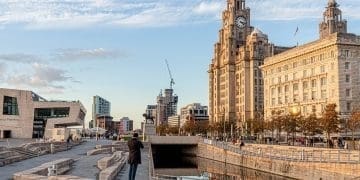The Bank of England has warned that Britain faces a personal debt mountain. While wages have risen only 1.5% in the last year, personal debt has grown by a staggering 10%. As living costs rise and wages fall in real terms, cash-strapped members of the public are turning to lenders as a last resort to stay afloat. But just as we saw a decade ago, this house of cards will collapse.
The warning
In a speech on 24 July, the Bank of England’s financial stability director Alex Brazier stated:
Household debt – like most things that are good in moderation – can be dangerous in excess.
He went on to say that ever-increasing levels of personal debt were “dangerous to borrowers, lenders and, most importantly from our perspective, everyone else in the economy”.
He added that high-street banks had entered “a spiral of complacency” when it comes to the personal debt mountain. And he said:
Lending standards can go from responsible to reckless very quickly.
The sorry fact is that as lenders think the risks they face are falling, the risks they – and the wider economy face – are actually growing.
This personal debt crisis was predicted by the Trades Union Congress (TUC) long before now. In 2016, they crunched the numbers and reported that a decade of pay rises below the rate of inflation had produced a real terms 10% pay cut for UK workers. Across the whole of Europe, only Greece had seen worse pay cuts for working people. TUC General Secretary Frances O’Grady said:
Wages fell off the cliff after the financial crisis, and have barely begun to recover.
The warning was clear. Britain needs a pay rise.
How did we get here?
While the banking sector created the financial crisis, it was the public who paid the price. And they paid three times over.
First, with the bank bailout. According to the National Audit Office, the UK government spent £850bn of public money on the bailout. Based on 2009-10 spending levels, this was 1.2 times the annual UK budget. It would have funded the entire NHS (£100bn a year) for eight years, or the whole jobseekers’ allowance bill (£3.68bn a year) for 230 years. This massive injection of public money saw both the budget deficit and national debt explode.

Second, the blame for the financial crisis was shifted from the private sector to the public sector. The deficit was blamed on excessive public spending by New Labour, even though the graph above shows this was clearly untrue. Austerity was implemented, public services and welfare were cut dramatically. By 2015, around 400,000 public sector workers had lost their jobs. By 2017, the use of food banks by Britons too poor to feed themselves had risen 2,792%.
And third, the public paid with wage cuts. The Conservative Party has pushed relentlessly for pay restraint in the public and private sector. This led to the 10% pay cut reported by the TUC. But this pay restraint was not distributed equally. During that same period, executive pay actually rose by 10%. While the average worker scraped by on £27,600 a year, the average executive is earning £5.5m. And billionaires also saw their incomes rise. In 2010, the richest 1,000 people in Britain shared a combined wealth of £335.5bn. By 2017, that had rocketed to £658bn.
The poor are getting poorer, and the rich are getting richer. That’s not a campaign slogan. It’s a fact.
Times must change
For all the talk of economic recovery, only two regions in the UK are better off today than they were in 2007. Unsurprisingly, they are London and the south-east. No one living anywhere else is experiencing an economic recovery. And some are in outright depression.

And those promises of dealing with Britain’s debt burden came to nothing too. As conservative magazine The Spectator points out, former Chancellor George Osborne borrowed more in his first five years than Labour did in the previous 13.

And Britain has nothing to show for it.
It’s time for change; and time for Britain to build again. Affordable housing, hospitals, roads, railways, and renewable energy. The Conservatives are out of ideas, except stack ’em high and sell ’em cheap. And if they are not removed from office soon, there will be little left to sell.
Get Involved!
– Sign the petition of no confidence in a Conservative/ DUP coalition. Make your thoughts on the deal known. Contact your MP and be vocal on social media.
– Organise! Join (and participate in the activities of) a union, an activist group, and/or a political party.
– Join The Canary, so we can keep holding the powerful to account.
Featured image via Screengrab









